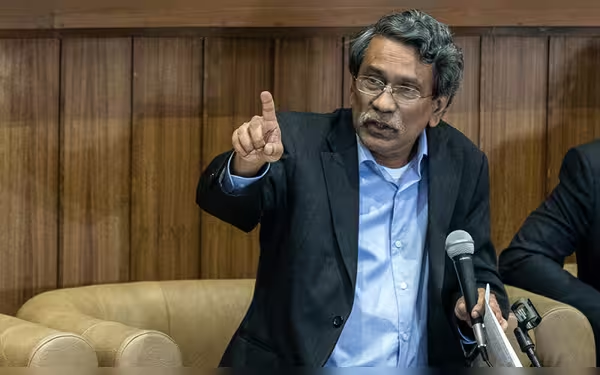Thursday, November 7, 2024 09:00 AM
Bangladesh Aims to Reform Constitution to Eliminate Fascism
- Bangladesh seeks to remove fascism from its constitution.
- Constitutional reform commission to submit recommendations by December 31.
- Muhammad Yunus emphasizes democratic governance post-autocracy.
 Image Credits: brecorder
Image Credits: brecorderBangladesh's reform commission vows to eliminate fascism from the constitution, aiming for a democratic future after Sheikh Hasina's autocratic rule.
In a significant move towards reform, Bangladesh's newly appointed constitutional reform commission has pledged to eliminate what it describes as "fascism" from the nation's constitution. This decision comes in the aftermath of a student-led revolution that successfully ousted long-time autocrat Sheikh Hasina. The commission, tasked with drafting a new constitution, aims to ensure that it truly represents the hopes and dreams of the Bangladeshi people.
The commission is required to submit its recommendations to the interim government by December 31. This initiative is part of a broader set of changes promised by Nobel Peace Prize laureate Muhammad Yunus, who has taken on the role of the country’s "chief advisor" following the upheaval in August. Ali Riaz, the chair of the reform commission and a political science professor at Illinois State University, emphasized the need for a constitution that reflects the aspirations of the citizens. He stated, "Under the current constitution, the prime minister holds immense power, and this centralization of authority paves the way for fascism." Riaz further explained that the imbalance of power is a significant contributor to the rise of fascism.
The reform commission comprises a diverse group of individuals, including senior barristers, law professors from Dhaka University, rights activists, and a student leader who played a crucial role in the protests against Hasina's regime. The reform process will involve extensive discussions with constitutional experts, lawyers, and representatives from civil society, as well as consultations between the government and various political parties. Riaz noted, "The interim government will discuss the proposals with all political parties and forward their recommendations to the commission. The final version will be established after a series of discussions."
Sheikh Hasina's 15-year tenure was marked by numerous human rights violations, including the mass detention and extrajudicial killings of political opponents. Her administration faced accusations of manipulating the judiciary and civil service, as well as orchestrating unfair elections to undermine democratic checks on its power. Yunus has previously remarked that he inherited a "completely broken down" public administration system that requires a thorough overhaul to prevent a return to autocratic rule.
The ongoing efforts to reform the constitution in Bangladesh highlight a critical juncture in the nation’s history. As the country seeks to establish a more democratic framework, it is essential for the voices of the people to be heard and integrated into the new governance structure. The success of this initiative will depend not only on the recommendations made by the reform commission but also on the willingness of all political factions to engage in constructive dialogue. Ultimately, the hope is that Bangladesh can emerge from this period of turmoil with a constitution that truly embodies the principles of democracy and justice, paving the way for a brighter future for all its citizens.













